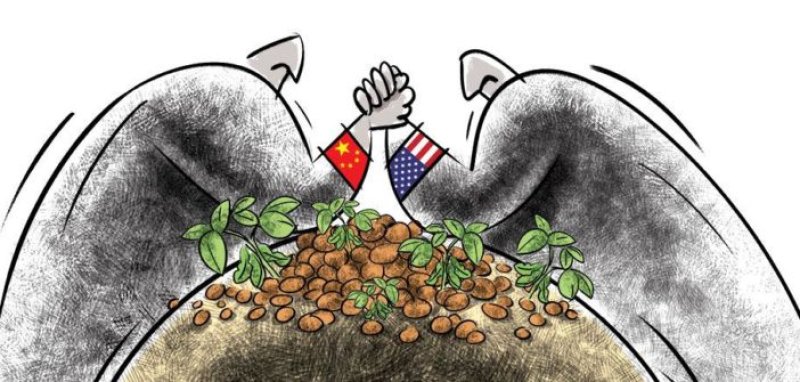We’ve enjoyed good weather, with the proper amount of heat during the day and adequate chilling through the wintertime. Water is expensive, but we’re getting enough. And right now, our trees are simply loaded with nuts.
So we’re ready to sell to the world.
Our valley already supplies the U.S. market with virtually all of the pistachios it needs, and we’ve got lots left over. About half my harvest will go abroad.
The only problem is that our biggest export customer, China, just slapped a huge tariff on our product: Chinese consumers who want to buy California pistachios now will have to pay a 40 percent tax, as part of a retaliatory measure in an emerging trade war between China and the United States.
The dispute started earlier this year, when President Trump imposed tariffs on imported steel and aluminum and then broadened the conflict by adding new duties on $50 billion in Chinese products. China shot back with its own protectionist measures, and now my pistachio farm is caught in the crossfire of an unfortunate controversy.
The pistachio tariff essentially will drive us out of the Chinese market. There’s just no way around it. We can’t cut our prices sharply enough to make up the difference.
That’s partly the point. The Chinese don’t want to collect revenue on tariffs as much as they want to hurt American business, in protest of Trump’s policies. Their strategy is to create economic pain in California, which they believe will turn into political pressure on the White House, forcing Trump to rethink his hard line on trade.
I’m always against a trade war-but I’m also hopeful that China’s scheme won’t work out the way Beijing imagines. In fact, our immediate future looks bright.
The United States exports more pistachios than anybody else, nearly 220,000 metric tons last year. Our closest competitor is Iran, at about 144,000 metric tons. Iran, however, will struggle to satisfy China’s huge demand when it peaks around the Chinese New Year.
That’s because this year Iran has suffered a crop disaster: Its pistachio production will plummet by as much as 75 percent, due to weather extremes, water shortages, and soil salinization.
If the Iranians shift their limited output to China, we’ll sell our California pistachios to the customers they abandon. We’ll find new buyers in Europe, India and elsewhere.
Demand for our pistachios is strong. We’re well on our way to selling out this year’s bounty, even though the new tariff means that in recent weeks, we haven’t sold a single nut to China.
The bottom line is that in the short term, despite the trade war, we’ll be okay. The circumstances of pistachio production in 2018 are stacked in our favor.
My worry is what will happen over the long term. If the trade war grinds on and China’s pistachio tariff remains in place, the Chinese may yet hurt us in exactly the way they intend.
Sooner rather than later, this trade war will have to end. Even Trump knows this, as he indicated in April, when he tried to calm the nerves of anxious farmers during the trade war’s opening salvos.
“We’ll make it up to them,” he said. “The farmers will be better off than they ever were. It will take a little while to get there, but it could be very quick, actually.”
I’m willing to give the president a bit of time, but I do plan to hold him to his promise.
Ted Sheely raises pistachios, lettuce, cotton, tomatoes, onions, wheat, wine grapes and garlic on a family farm in the California San Joaquin Valley. He volunteers as a board member for the Global Farmer Network.
This article was originally published at The Hill as Farmers like me are reaping short-term benefit of Trump’s trade war — but we fear long-term cost and has been republished here with permission.































